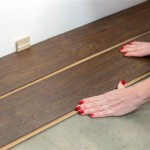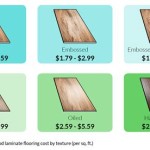How to Install Vinyl Flooring Over Cement: A Comprehensive Guide
Vinyl flooring is a popular choice for DIY enthusiasts and homeowners alike due to its affordability, durability, and ease of installation. If you're considering installing vinyl flooring over cement, this comprehensive guide will provide you with all the essential steps to ensure a successful and professional-looking result.
1. Prepare the Cement Surface
Before you begin installing the vinyl flooring, it's crucial to prepare the cement surface properly. This involves removing any existing flooring, cleaning the surface thoroughly, and making sure it's level and smooth. If the cement surface has any cracks or imperfections, it's recommended to fill them with a cement patching compound and smooth them out.
2. Install an Underlayment
An underlayment is a layer of material that goes between the cement surface and the vinyl flooring. It serves several purposes, including reducing noise, providing a moisture barrier, and leveling out any unevenness in the cement. There are different types of underlayments available, such as foam, cork, and rubber. Choose an underlayment that's appropriate for your vinyl flooring and the specific conditions of your installation.
3. Choose the Right Vinyl Flooring
There are two main types of vinyl flooring: sheet vinyl and luxury vinyl tile (LVT). Sheet vinyl comes in continuous rolls and is typically installed using adhesive. LVT is made up of individual tiles or planks that are clicked together or glued down. Consider the size, shape, and color of the vinyl flooring to match your design preferences and room décor.
4. Install the Vinyl Flooring
Now comes the actual installation of the vinyl flooring. If you're using sheet vinyl, apply an even layer of adhesive to the cement surface and carefully position the vinyl sheet. Use a roller or a squeegee to smooth out the vinyl and remove any air bubbles. For LVT, follow the manufacturer's instructions for clicking or gluing the tiles or planks together.
5. Trim and Finish
Once the vinyl flooring is installed, it's time to trim any excess around the edges and install baseboards or moldings. Use a utility knife to score and snap the vinyl along the edges, and use a miter saw to cut any angles for corners or transitions to other flooring types. Install baseboards or moldings to cover the expansion gap around the edges and give the flooring a finished look.
6. Clean and Maintain
After installation, clean the vinyl flooring with a damp mop and a pH-neutral cleaner. Regular cleaning and maintenance will help keep your vinyl flooring looking its best for years to come. Avoid using harsh chemicals or abrasive cleansers, as they can damage the surface of the vinyl.
Installing vinyl flooring over cement is a rewarding project that can transform the look of your space. By following these steps carefully and taking your time, you can achieve a professional-quality installation that will enhance your home's beauty and value.

How To Prepare A Concrete Floor For Vinyl Flooring Parrys

How To Install Vinyl Or Laminate Floors In A Basement Over Concrete Slab

Tips For Installing Vinyl Plank Over Concrete Floors Lemon Thistle

Easy Ways To Install Vinyl Plank Flooring On Concrete

Best How To Install Vinyl Plank Flooring Four Generations One Roof

Vinyl Plank Flooring On Uneven Concrete

Lvp Flooring Installation How To Install Luxury Vinyl Plank In A Basement Diy

How To Install Vinyl Or Laminate Floors In A Basement Over Concrete Slab

Tips For Installing Vinyl Plank Over Concrete Floors Lemon Thistle

Tips For Installing Vinyl Plank Over Concrete Floors Lemon Thistle
Related Posts








